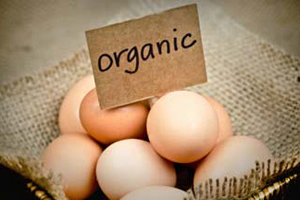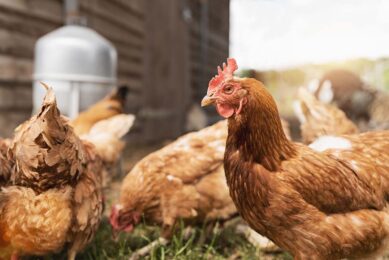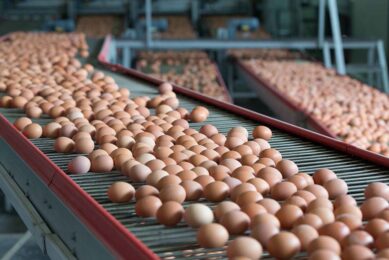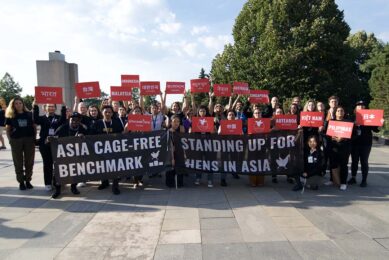UK organic egg sector on verge of change

A greater divergence of laying breeds in the organic sector is emerging as the enlightened attitude of some supermarkets, an increase in organic box schemes and the rising popularity of farmers’ markets have helped create a trend away from large egg size.
According to one of the UK’s leading organic feed suppliers, Hi Peak Organic Feeds, reversal of the notion that big is beautiful when it comes to egg size is overdue. The result, it adds, is a wider array of laying breeds, which has presented the challenge of making sure diets reflect individual breed types.
“In addition to the more established laying breeds of Lohmann, Hy-Line and Warren, we are seeing a rise in prominence of breeds such as Columbian Blacktail, Bovan Brown and Amber Link. The idea that the feeding requirements are the same across these breeds fails to recognise the financial and performance benefits of feeding to particular need,” says Hi Peak’s managing director Ian Proctor.
“In the same way you wouldn’t feed an Olympian the same diet as a non-athlete, neither would you feed a breed selected for egg mass in the same way as a breed selected for egg size. The balance of protein and energy can be critical, as are the sources from which they are derived.”
Hi Peak stresses that protein and energy levels are critical in driving egg production and egg weight, and it says maintaining correct bodyweight and composition is important to ensure strong peaks and good persistency of lay. Also, the ratio of protein and energy must be balanced at different stages of production to ensure breeds meet their production potential at the desired level of feed intake.
“Failure to feed breed-specific diets is often down to an over-reliance on a narrow range of organic ingredients,” says Proctor. “The problem is often organic feed manufacturers lacking the inclination to source sufficient raw materials in the first place. A move towards organic-only mills would help, because it permits the keeping of more organic raw materials, eliminating competition between organic and conventional bin storage.
“Quality of protein is also a factor in achieving adequate amino acids. Exact amounts and ratios of amino acids will depend on breed, feed intake and the relative importance of egg numbers versus egg size; but whichever way you evaluate it, access to a good spread of protein, energy and amino acid sources is essential. Also, a broad selection of organic ingredients facilitates a more sustainable release of energy, protein and amino acids – always preferable because different rates of degradability within the diet give rise to better health and performance.
“By formulating in this way you are improving feed efficiency because every kilo fed is more effectively utilised. You are also conforming to the fundamental organic principle that feed is intended for quality production while meeting the requirements of the livestock at various stages of their development.”
Hi Peak’s policy is to purchase organic raw materials grown in the UK whenever possible, and typically the company has a stock of 12 ingredient types. But only 11% of organic land in this country is in arable cropping and this is a missed opportunity, says Proctor.
Source: Poultry World
Join 31,000+ subscribers
Subscribe to our newsletter to stay updated about all the need-to-know content in the poultry sector, three times a week. Beheer
Beheer








 WP Admin
WP Admin  Bewerk bericht
Bewerk bericht